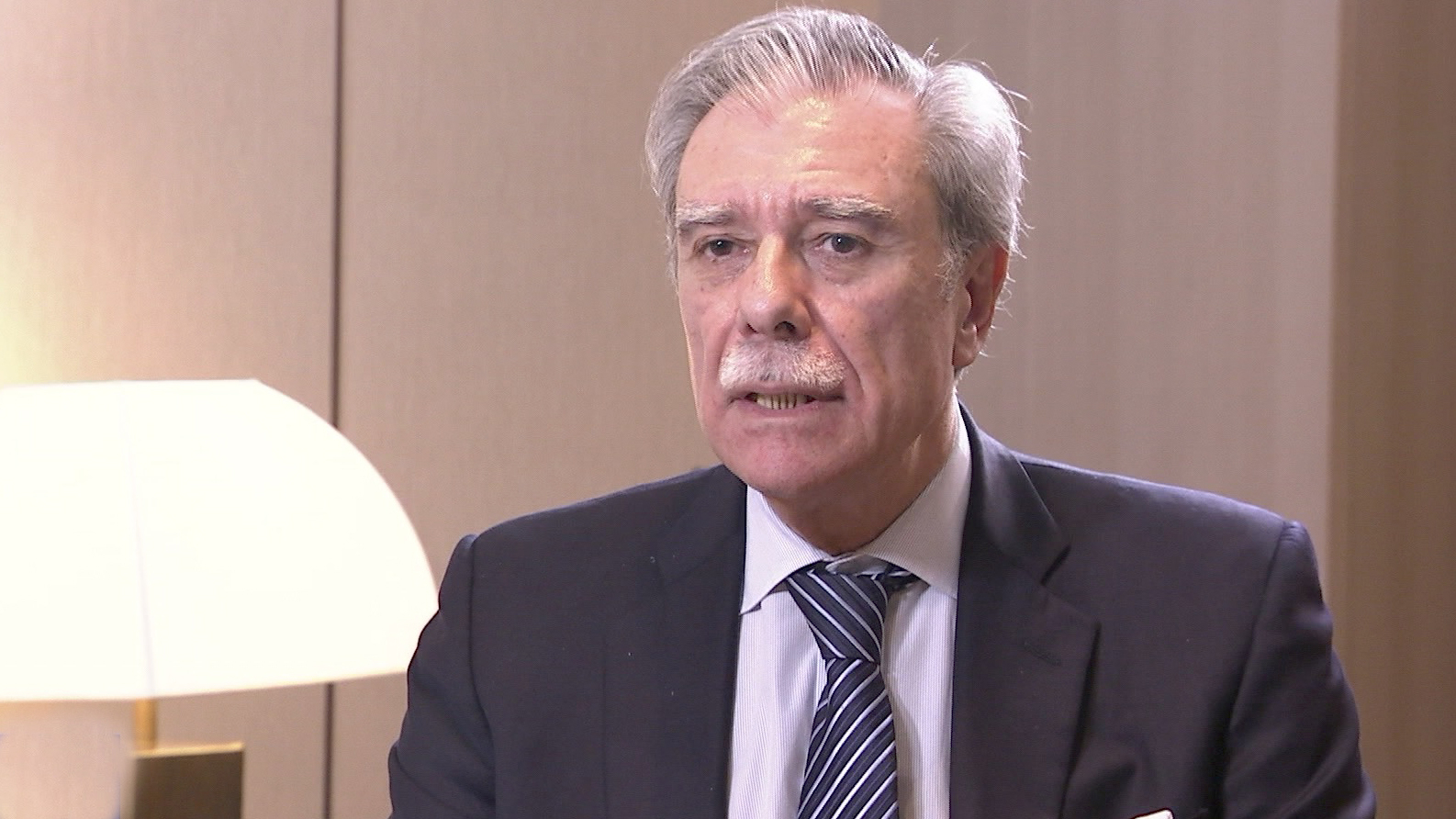02:20

"We should take advantage of this opportunity to stop and then start de-escalating," said Carlos Gutierrez, former U.S. Secretary of Commerce under the Bush administration from 2005 to 2009.
The U.S. Department of Commerce has announced a tariff exclusion process for Chinese goods. In the four months starting October 31, U.S. stakeholders can apply to the Office of the United States Trade Representative (USTR) to cancel the additional 10 percent tariffs placed on their Chinese imports. In their applications, American importers need to declare if the Chinese product can be substituted, or if the product is of strategic significance to Chinese industrial policies. If the application is approved, tariffs already imposed since September 1, 2019 can be refunded retroactively.
Since the latest round of China-U.S. trade talks concluded in Washington last week, voices from both sides have been cautiously positive. U.S. President Donald Trump said this week that a phase-one trade pact is on track for November. CGTN's Senior Correspondent Tian Wei sought the insights of Carlos Gutierrez about the so-called "phase one deal". During his tenure, he advocated agreements that promoted free trade and boosted global investment.
Gutierrez thinks phase one is an opportunity, and he hopes that it is an opportunity that both China and U.S. could seize. "I think the U.S. side may want to see more market accesses. But the important thing is that we have halted the escalation. And if we restart that tariff war, then it will come back even stronger," said Gutierrez.
However, he believes the trade talks are very public because of social media. Everyone is pinning on what is happening with the trade talks, but that is dangerous because people simplify it too much. According to him, people always read one sentence on social media and speculating the trade war is over, and then the stock market goes up. The point of him is people are not paying attention to the detail. "And they are not realizing the progress that they thought was there six months ago, really wasn't there. So that is very dangerous and volatile. It just shows how fragile things are," he said.
Gutierrez also added that people are learning about social media, a lot of people have been burnt by social media. He thinks this is going to be part of the learning process in the new digital age, which understands everything people read is not necessarily the complete picture.
01:40

In a recent speech, Gutierrez mentioned that if "the cure" to "the disease" is not the right cure, then it is even more dangerous than "the disease" itself. In this case, what he referred as "the disease" is the trade deficits, but now it had moved into structural reform of how we are going to manage technology. Regarding to working together on technology, Gutierrez thinks China and the U.S. should collaborate to establish rules, otherwise the two countries are denying the benefits of wonderful technologies.
In addition, he believes in something bigger than us, which is peace and harmony.
"We need to believe in a world that is in harmony and not in chaos. As the Chinese saying goes, we should seek harmony, not uniformity. We have different cultures, different histories, but we can't just be selfish and think about ourselves, especially China and the U.S., the two most important countries in the world. I believe we have the responsibility of thinking about something bigger than ourselves," he said.
World Insight with Tian Wei is a 45-minute international platform for debate and intelligent discussion. It is the meeting point for both highly influential and rising voices, facilitated by host, Tian Wei.
Schedule: Monday-Saturday
Time (GMT): 1415, 2015
(If you want to contribute and have specific expertise, please contact us at opinions@cgtn.com.)